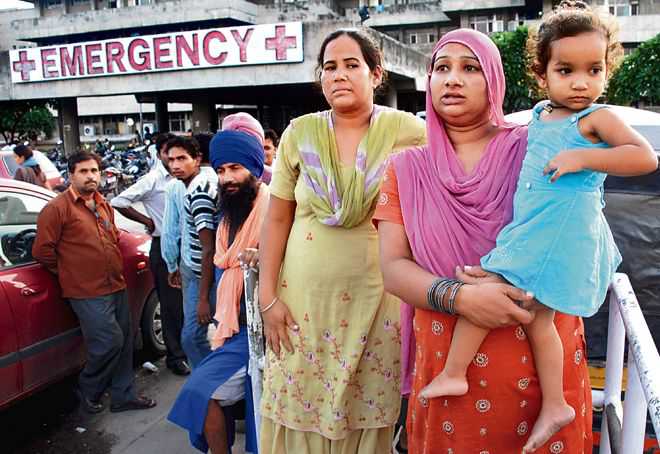Dr R Kumar
President, Society for Promotion of Ethical and Affordable healthcare
HEALTH literacy is the capacity to obtain, process and understand healthcare information and services needed to make appropriate decisions in the areas of wellness and patient care. It is one of the factors that lead to the acquisition of knowledge, positive attitude, self-efficacy, positive health behaviour, and better survival. It gives a sense of control and confidence to individuals to gain access to and understand aspects of health promotion for themselves, their families and communities. It further helps in mobilising communities to address the social, economic and environmental determinants of health. Low health literacy, on the other hand, has been found to be associated with lesser use of preventive services, and excessive use of emergency services, with high costs and dismal outcomes. Besides increased hospitalisation, patients with poor health literacy have high incidence of adverse drug reactions and nearly two-fold higher risk of death. Low health literacy is associated with failure to seek timely medical help, lower rate of vaccination in children, increased burden of sexually transmitted diseases in the youth, the inability to interpret and follow up with prescribed medication for the elderly, and consequently higher morbidity.
Health literacy is critical to the empowerment of communities against emerging threats such as from the pandemic influenza, climate change and non-communicable diseases. Similarly, for patients suffering from conditions like acute coronary syndrome or severe infections, those with lower health literacy are more likely to die than those empowered with it, studies have revealed. The theme of this year’s World Health Day is Universal Health Coverage (UHC), which includes preventive care, medical treatment and palliative care. Can UHC succeed without health literacy?
In India, at least nine out of 10 adults suffer from low health literacy. It is reported that even in the US and the UK, more than 50 per cent of the people have low health literacy; the ‘cost of ignorance’ is about $200 billion in the US alone. Such people harbour myths about food and exercise, lack knowledge about symptoms of diseases, or have misinformation about the body functions or the use of medicines. Lack of health literacy, coupled with the ever-growing population, also poses a threat to our nation’s economic stability as patient-care expenditures are on the rise. India also has an unusually high rate of general illiteracy and stark poverty, both of which contribute to low rates of health literacy. An unhealthy lifestyle leads to repeated visits to the hospital. Similarly, rushing patients to top hospitals, when declared as ‘unlikely to survive’ by referring doctors, is choking these hospitals with dying patients. It is a myth that with advanced medicine, surgery, devices and technology, an institute like the PGIMER ensures survival, even for the terminally ill. Unrealistic expectations and attendant violence against doctors are also attributed to low health literacy. Thus, it can be the underlying cause of many deaths due to ignorance. Can the nation afford to let its premier institutes suffer from an overload of dying patients?
Universal Health Literacy (UHL), which accounts for more comprehensive understanding, aims to influence not only individual lifestyle decisions, but also raises community awareness of the determinants of health, and encourages individual and community actions, which may lead to modification of these determinants. It goes beyond a narrow concept of reading pamphlets or school health education and addresses the environmental, political and social factors that determine promotion as well as maintenance of good health for all. The skills under UHL include: reading, writing, listening, speaking, numeracy, and critical analysis, as well as communication and interaction skills in the areas of health, healthcare, health administration and patient education. It also includes the study of working conditions (exposure to common pollutants and dangerous substances such as lead, asbestos, mercury), as well as physical demands (carrying heavy load etc.), besides the availability of basic needs like adequate and clean water, proper breathing and enough oxygen, appropriate food, right exercises, exposure to sunshine, peace of mind etc.
Health literacy involves a range of abilities, including the following:
- Navigating the healthcare system (includes filling forms, finding suitable doctors).
- Describing symptoms and sharing personal health information.
- Knowledge of how the body works, types of disease and causes.
- Connecting lifestyle (smoking, drinking, diet and exercise) with health.
- Weighing risks and benefits of medical tests and procedures.
- Health insurance literacy to avail healthcare services.
- Getting a second opinion in case treatment is invasive or expensive.
- To be your own advocate. No one knows you better than you.
- Partnering with your doctor.
- To be familiar with correct doses, blood sugar level, cholesterol level etc.
It cannot be stressed enough that there is a need for health policies and strategies that address the issue of health literacy. It can be used as a tool for the empowerment of people by their own participation, not just by the intervention by doctors. Better government policies can, thus, be drafted for further improvement in health services. The school and college curriculum must include ‘body literacy’ from the primary classes onwards to sow the seeds of health literacy in the young minds, so that they grow into healthy adults. Reducing the availability of junk food, banning the promotion of unhealthy food, highlighting the perils of obesity and excessive use of mobile phones, and sensitising the media to promote health literacy are essential. A health-literate India would be a richer and more productive country. If we want to become a developed country, this is one of the first hurdles we need to cross.
Unlock Exclusive Insights with The Tribune Premium
Take your experience further with Premium access.
Thought-provoking Opinions, Expert Analysis, In-depth Insights and other Member Only Benefits
Already a Member? Sign In Now










